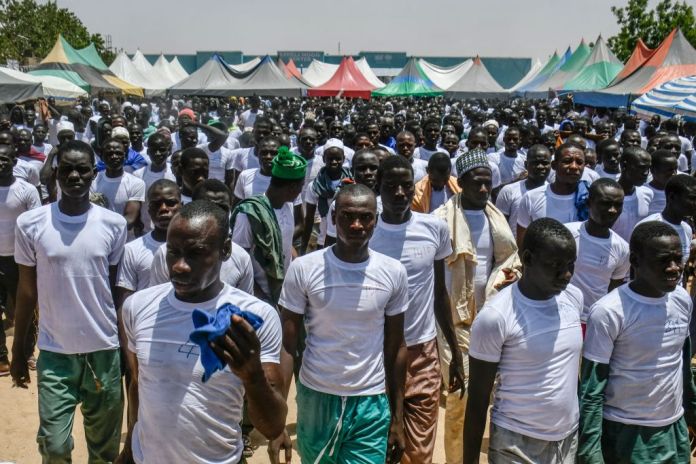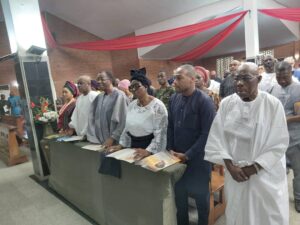The Nigerian government has allocated a total of ₦1.4 billion over the last year and a half to rehabilitate repentant terrorists and establish trial centres for terrorism-related cases.
This initiative began after former President Muhammadu Buhari signed the Terrorism (Prevention and Prohibition) Bill into law on May 12, 2022. The law led to the creation of the National Counter-Terrorism Centre (NCTC). The government also started plans to build two centres designed to disarm, deradicalize, rehabilitate, and reintegrate former members of Boko Haram and other terrorist groups.
Rear Admiral Yem Musa (retd.), who coordinates the NCTC, confirmed that ₦2.4 billion was included in the 2023 budget to support these centres as part of the NCTC’s ₦3.8 billion capital projects.
According to data from the GovSpend platform, the Ministry of Justice spent ₦1.4 billion from December 2022 to May 2024 on these rehabilitation efforts and on the renovation of court facilities for terrorism trials. In March 2023, ₦612 million was spent on upgrading old structures to host terrorism trials and build dormitories for the rehabilitation of ex-terrorists under Operation Safe Corridor. An additional ₦179 million was spent in 2024 on similar projects, including the procurement of equipment for terrorism-related prosecutions.
In recent updates, the NCTC announced securing 325 convictions during the Phase 5 and Phase 6 trials at the Kainji Detention Facility. These convictions, ranging from the death penalty to life imprisonment, reflect the seriousness of the crimes committed.
Despite the efforts, concerns have been raised about the secrecy surrounding these trials. Security experts and civil society groups have questioned why the trials are being held behind closed doors, especially considering the severity of the crimes. While some believe that transparency is crucial for public trust, others argue that secrecy is necessary for national security. So far, the government has not provided a clear reason for holding these trials in secret.







